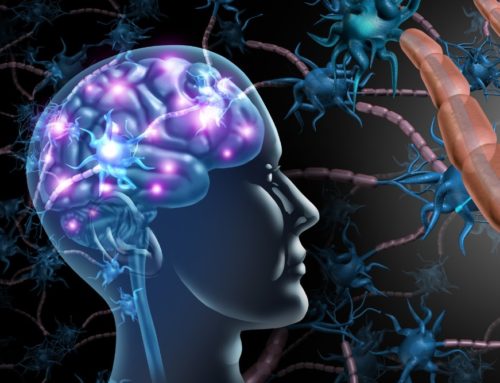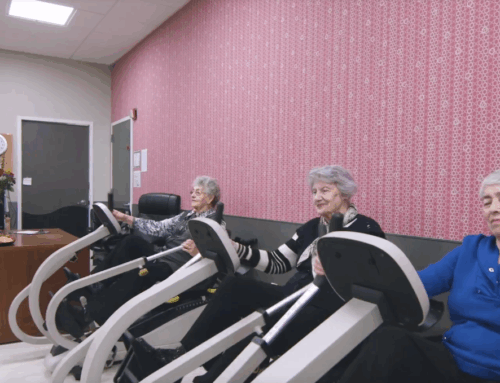What Aggravates Neck Arthritis Symptoms
Over 100 variations of arthritis exist, affecting several body parts, depending on which you develop. Neck arthritis is a common issue in those over 60, causing pain, stiffness, headaches, muscle spasms, and balance problems. As the condition progresses, these symptoms become more severe, requiring treatment to maintain independence.
Though impossible to cure, your doctor may recommend arthritis rehab and care to manage your symptoms and slow the progression. The rehab includes physical therapy and exercises to strengthen the muscles supporting the affected joint and maintain range of motion. Heat and cold therapy for pain reduction and nutritional education are also vital aspects of the therapy.

What Worsens Neck Arthritis?
The inflammation and pain of arthritis worsen over time, but some factors trigger worsening symptoms. According to Johns Hopkins, aging, normal wear and tear, and your genetic history often contribute to arthritis development.
Medical conditions, such as psoriasis, tuberculosis, irritable bowel syndrome, and diabetes, could also worsen neck arthritis. Injury or trauma to the area will likely cause further damage. The following sections cover the most common issues aggravating your condition.
Posture
Poor posture causes weak, tight muscles that shorten over time. They don’t support the spine as they used to, worsening its curve and contributing to neck pain. Hunching over a desk, sitting in chairs with little back support, and even standing for too long all compound the issue.
Though poor posture is bad for everyone, it actually worsens neck arthritis. Lack of muscle support speeds up spine degeneration, exacerbating your condition.
Physical inactivity
When we’re in pain, we often try to stay still to prevent further discomfort. Unfortunately, inactivity has the opposite effect, increasing the aches and stiffness associated with neck arthritis. The less time spent moving, the quicker your body deteriorates, reducing your ability to recover your strength.
To prevent worsening symptoms, use some time each day to work your neck and back muscles. Adding simple stretching and strengthening exercises to your day is all that’s needed. Discuss safe activities with your doctor or physical therapist for the best results.
Repetitive and chronic stress
Repetitive stress is another possible cause of increased neck arthritis symptoms. Techniques such as meditation, deep breathing, and progressive muscle relaxation can be helpful because stress can intensify your arthritis pain.
This is because prolonged stress can exacerbate inflammation and pain, worsening arthritis symptoms. Stress affects us not only physically but also mentally.
One of the most common causes is “text neck”. The phrase refers to how we lean forward to view smartphones instead of raising them to eye level. Studies show regular use of screens is related to increased neck muscle fatigue and arthritis pain.
Activities like reading, biking, and cooking could also contribute since they continually force your neck into an unnatural position. The more strain you put on your neck muscles, the faster your condition progresses.
Degenerative disk disease
Disks rest between the vertebrae making up the spinal column. They act as cushions, preventing those bones from touching when you move. Over time, those disks dry out, weakening and shrinking. As they settle, the bones move closer together, rubbing as your spine shifts and turns. Eventually, bone spurs develop, reducing range of motion.
Degenerative disk disease is common in those with neck arthritis, aggravating your already uncomfortable symptoms. Though the damage isn’t reversible, physical therapy, massage, and medication are possible treatments.
Start doing exercises regularly that strengthen the neck and back muscles, such as swimming, walking, and yoga or simple ones while siting and working in front of computer. Turn your head to the sides or massage your neck.
Avoid high-impact activities that may worsen the condition. Improve your posture at work and home, especially if you spend long hours sitting or working at a computer. Use chairs that support your lower back and maintain a neutral neck position.
Keep a healthy weight to reduce the strain on your spine. Consider using a cervical pillow may help maintain proper neck alignment during sleep.
Resources:
Johns Hopkins Medicine, Spinal Arthritis (Arthritis in the Back or Neck) https://www.hopkinsmedicine.org/health/conditions-and-diseases/spinal-arthritis
Better Health, Posture https://www.betterhealth.vic.gov.au/health/conditionsandtreatments/posture
Stacey Feintuch, June 20, 2019, Arthritis in your neck: Signs of neck arthritis and what to do about it https://creakyjoints.org/living-with-arthritis/symptoms/arthritis-in-neck/
NCBI, March 1, 2022, Effect of airplane passenger seat armrest height on human neck comfort when using a smartphone https://www.ncbi.nlm.nih.gov/pmc/articles/PMC10464794/
Orthoinfo, Cervical Spondylosis (Arthritis of the neck) https://orthoinfo.aaos.org/en/diseases–conditions/cervical-spondylosis-arthritis-of-the-neck/
Versus Arthritis, Stress and Arthritis: Why It’s Important to Manage Your Stress Levels; 09 January 2024 https://versusarthritis.org/news/2024/january/stress-and-arthritis-why-it-s-important-to-manage-your-stress-levels/#:~:text=Stress%20can%20worsen%20autoimmune%20inflammatory,and%20sometimes%20other%20organs%20too.
This article contains informational and educational materials and does not replace health or medical advice. For questions or concerns regarding your medical condition or health objectives, speak to a qualified physician or healthcare provider.






Leave A Comment